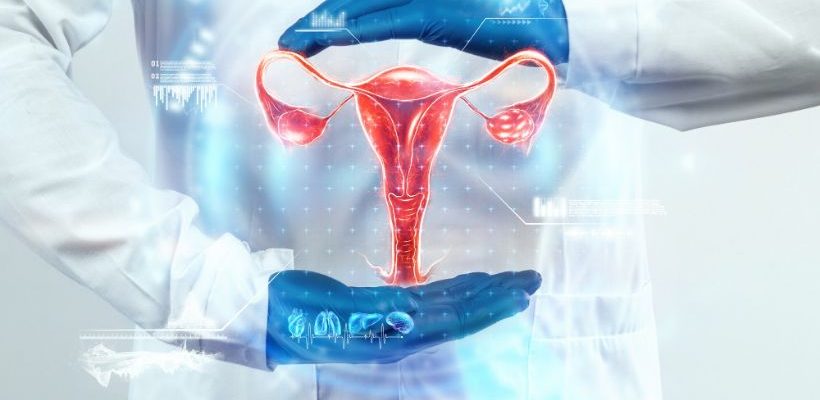
In the realm of women’s health, the battle against cancer stands as one of the greatest challenges. Among the various forms of this relentless disease, endometrial cancer emerges as a prominent adversary.
So, with a mission to empower and enlighten, this blog will unravel the mysteries surrounding this prevalent gynecological cancer, shedding light on endometrial cancer treatment, risk factors, and diagnosis.
What increases the Endometrial Cancer Risk Factors?
These are some factors that may increase the risk of endometrial cancer:
- Early menstruation (starting before age 12)
- Early menopause (before age 50)
- Endometrial polyps
- Estrogen replacement therapy
- Irregular periods
- Never being pregnant
- Obesity
- Polycystic ovary syndrome (PCOS)
- Tamoxifen use (a drug for breast cancer treatment)
Endometrial Cancer Prognosis
Endometrial cancer prognosis is a crucial aspect of understanding the potential outcome and future course of the disease. Factors such as the stage of cancer at diagnosis, grade of the tumor, and the presence of specific biomarkers play significant roles in determining prognosis.
A favorable prognosis is often associated with early-stage diagnosis, lower tumor grade, and the absence of metastasis. However, you should know that each case is unique, and the prognosis may vary. Through advanced medical advancements and personalized endometrial cancer treatment approaches, medical professionals strive to optimize outcomes and provide hope to individuals facing endometrial cancer.
Aside from these factors, some health conditions also increase the risk of developing cancer, and these conditions include breast cancer, colon cancer, diabetes, gallbladder disease, and high blood pressure.
Endometrial Cancer Diagnosis
This condition is usually detected at very early stages because it produces abnormal vaginal bleeding. This symptom urges women to see their doctors. When the condition is diagnosed early on, surgery can be performed to remove the uterus, which successfully cures the condition. Other signs and symptoms of endometrial cancer include:
- Abnormal blood-tinged discharge from the vagina
- Bleeding in between periods
- Pain during intercourse
- Pain in the pelvis
- Vaginal bleeding after menopause
Seeing a doctor and seeking endometrial cancer treatment right away is important whenever you experience any of these symptoms. While they may be signs of a completely different condition, it’s still essential to get checked right away to ensure that the condition is ruled out.
What Are Some Endometrial Cancer Treatment Methods?
1. Surgery
Surgery is done to remove the uterus, and oftentimes, the fallopian tubes and ovaries, too. This is believed to be a major alternative treatment for endometrial cancer. It is usually done for the early stages of cancer when the problem is still contained inside the uterus.
2. Radiation Treatment
Radiation treatment for endometrial cancer is yet another way to combat this cancer. This endometrial cancer treatment method makes use of powerful energy beams to kill cancer cells. In some cases, radiation may also be done prior to doing surgery, as it shrinks tumors and makes them easier to remove.
3. Hormone therapy
Another effective method to fight this cancer is hormone treatment for endometrial cancer. It involves the intake of medication, which in turn affects the hormone levels in the body. This is usually done for those with advanced endometrial cancer, especially that which has already spread outside the uterus.
4. Chemotherapy
One of the most common cancer treatments, chemotherapy uses chemicals to kill cancer cells and is also recommended for women with advanced levels of endometrial cancer. So, we can say that chemotherapy is an effective metastatic endometrial cancer treatment.
Endometrial Cancer Staging
If indeed you are diagnosed with endometrial cancer, you will need to undergo endometrial cancer staging treatment. Your treatment method will depend on the various characteristics of the disease. Some of them are what stage it is, your overall health, and of course, your preferences in terms of treating it.
Final Thoughts
Endometrial cancer, just like other diseases, should not be ignored as it can prove to be fatal. Now that you know about its risk factors, make sure to take precautions. And if you notice any of the above mentioned symptoms, contact a doctor immediately for diagnosis. Remember that only effective endometrial cancer treatment can help you fight that dangerous disease.
Also Read
UNVEILING THE DANGEROUS ASPARTAME SIDE EFFECTS ON HEALTH
SLEEP APNEA: THE SURPRISING CULPRIT BEHIND YOUR RESTLESS NIGHTS
TIPS TO MAINTAIN AN ACTIVE LIFESTYLE WITH EARLY ONSET ALZHEIMER’S
EXPLORING 5 PROVEN METHODS FOR NATURAL ED TREATMENT
10 MIRACULOUS HEALTH BENEFITS OF POMEGRANATE




